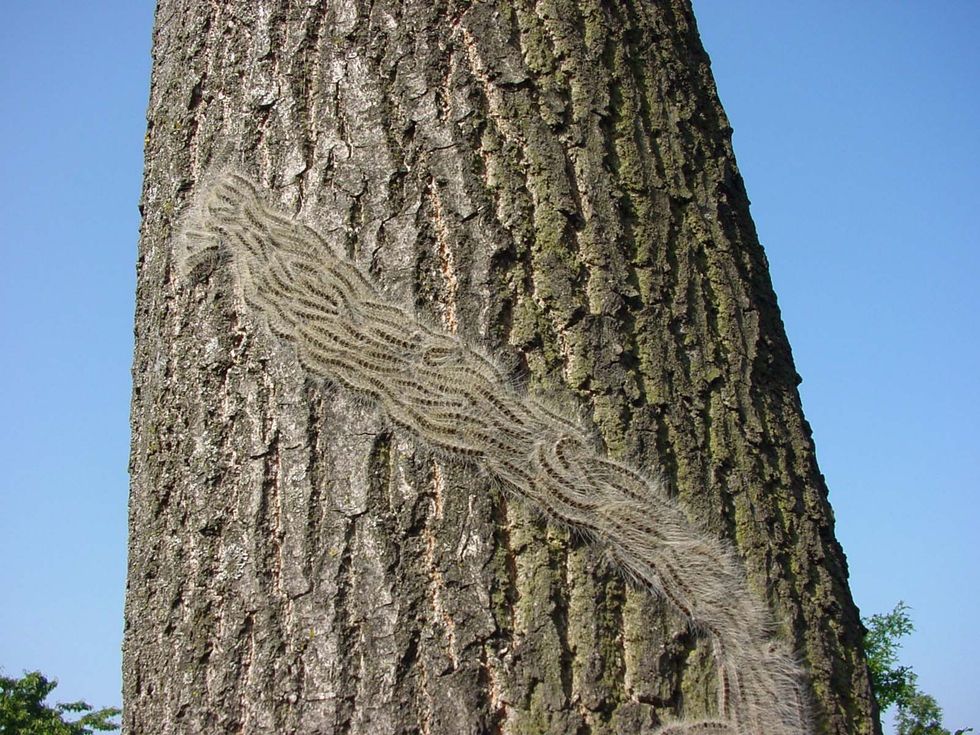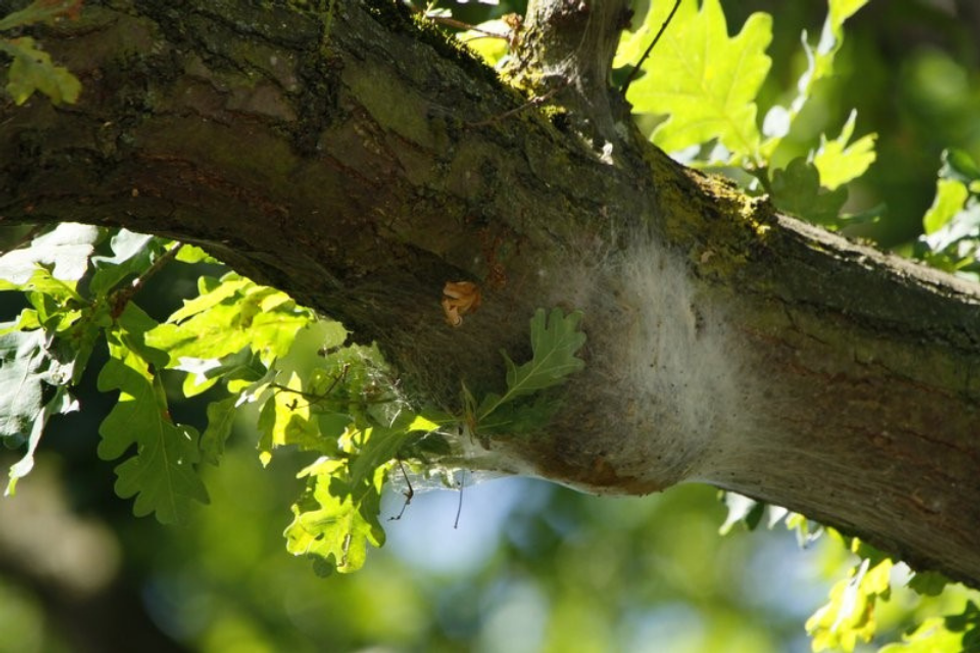
A plague of hairy toxic caterpillars have descended on the United Kingdom as experts warn Britons against approaching the critters
UK Government
The insects can cause nasty skin rashes, vomiting, dizziness and even asthma attacks
Don't Miss
Most Read
Trending on GB News
A plague of hairy toxic caterpillars have descended on the United Kingdom as experts warn Britons against approaching the critters.
Some 225 people were poisoned by oak processionary moth hairs last year.
The figure stood four-times lower in 2021 at just 56.
The caterpillars, also known as thaumetopoea processionea, can cause nasty skin rashes, eye and throat irritation, vomiting, dizziness, fever, and asthma attacks.

They have left around 121 million oak trees in peril as the bugs strip away leaves
Forest Research
The two-inch moths fire off hairs when threatened but are also carried on the wind.
Children, pets, people who work on or close to oak trees, anyone spending time close to infested trees and grazing livestock and wild animals have been identified as being among the groups most vulnerable to the health hazards associated with the critters.
Southern England was first hit by the pests after the caterpillars arrived in London via a shipment of trees in 2006.
The Forestry Commission issued an appeal for sightings of the moths.
They have been described as having white, tennis-ball sized nests.
However, the oak processionary moth caterpillars do not only cause harm to humans and livestock.
They have left around 121 million oak trees in peril as the bugs strip away leaves.
The insects ultimately expose oak trees to droughts and other pests.

The caterpillars have been described as having white, tennis-ball sized nests.
UK Government
The Forestry Commission warned: “Don’t approach them or try to remove them. Call us.”
The non-ministerial department has also been spraying dozens of sites in an attempt to kill off the moths.
Forest Research’s most recent situation update also said: “It isn’t possible to eradicate the largest outbreak in London and the surrounding areas but a Government programme has been in place since 2012 to minimise its size, spread and impact.”
It added: “We urge everyone to be vigilant for OPM, in spring and summer particularly, and to report any suspected findings through TreeAlert.”








